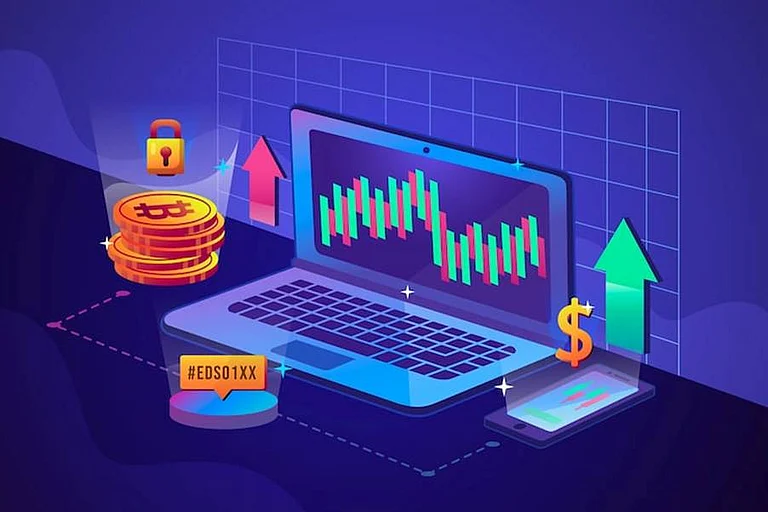In the quickly changing market of digital assets, crypto trading exchanges have become the pillars of cryptocurrency markets. It is through these exchanges that traders can comfortably buy, sell, and swap cryptocurrencies, providing an entry window to the wider digital economy. As the markets grow, it becomes more vital to be aware of the driving factors that make trading effective and secure. Of all of them, liquidity is perhaps the most critical. Liquidity simply refers to the ease of selling or buying a property in the market without changing its price largely. In crypto trading platforms, liquidity is not a tech slang; it is the blood that makes the transaction go smoothly and provides market equilibrium.
What is Liquidity in Crypto Trading
Liquidity in the context of crypto trading sites is the availability of active bids and asks under which the trades can be completed quickly and effectively. In a liquid market, there are ample sizes and participants so that assets can be sold with little slippage and at prices near market prices. For instance, when a seller of large volumes of Bitcoin on a very liquid exchange sells without triggering a large price drop, one cannot. In low liquidity, even similarly sized trades trigger unexpected price movements that will lead to loss or unintended consequences.
Liquidity is determined by a variety of factors, such as volume traded, active traders, and market makers. Market makers are also very important by continually quoting both buys and sells so that other traders would always have a counterparty to trade against. In the absence of enough liquidity, traders can experience slowness, higher cost, and increased risk, and the trading mechanism becomes less efficient and less desirable.
Liquidity's Role in Trading Efficiency
Among the main reasons why liquidity is of utmost importance for crypto trading platforms is that it influences trade efficiency directly. Narrow bid-ask spreads, the spread of bid-ask between the price at which an asset is bought and sold and where the traders will buy and sell the asset, is a measure of a well-functioning marketplace. A narrower spread means a more liquid market and that the traders can close trades at prices which very accurately signify the actual market value.
Liquid market traders have faster executions and less trading cost. This is of significant concern to institutional investors and professional traders, who are making large numbers of trades and require favorable pricing to depend on. Conversely, low liquidity has high spreads, which increase the cost of buying or selling assets. Furthermore, low liquidity enhances the possibility of slippage, whereby the execution price varies from the anticipated price. Slippage has the ability to greatly affect profitability, especially when there's high market volatility, and this is why liquidity is a key component in crypto exchange platforms.
Liquidity and Price Stability
Price stability is closely linked to liquidity. Liquid markets will have a high volume of buy and sell orders that serve as a buffer to absorb unwanted price movement not anticipated. There will not be extreme swings in market prices with big orders being absorbed immediately, keeping the market stable and increasing traders' confidence. Price stability matters, not just for active traders but also to long-term investors as too much volatility will deter entry and erode confidence in the market.
For minor cryptocurrencies or altcoins, liquidity becomes even more crucial. Although big coins such as Bitcoin and Ethereum usually possess high levels of liquidity, minor virtual currencies have low trading volume and are susceptible to manipulation of prices as well as excessive price fluctuations. High liquidity crypto exchange platforms prevent such dangers from occurring, making it possible for traders to conduct open and equitable transactions even with unpopular tokens.
Increasing Market Accessibility
Liquidity also affects market accessibility. A liquid market provides opportunities for buyers and sellers of all sizes to enter without worrying about the effect their trades will have on prices. Individual investors gain by being able to enter and leave positions in an instant, and institutional investors are comfortable putting large orders in without influencing the market. Accessibility is necessary to allow growth and trust within the world of cryptocurrency.
Crypto exchange sites also apply several methods to improve liquidity. Centralized exchanges will collaborate with other platforms or the liquidity providers to maintain continuous orders. In decentralized finance, liquidity pools serve the same purpose. Users put their assets in these pools, which makes trading possible and gives rewards to the contributors. It is a viable system where liquidity is supplied always, and all members of the market benefit.
Liquidity and Platform Reputation
The platform's reputation has a great deal to do with liquidity. Less efficient or less reliable platforms with low liquidity are seen to chase away investors and traders. On the contrary, very liquid platforms are viewed as professional, reliable, and suited to accommodate high volumes of trade. Having high liquidity not only enhances user experience but also helps the reputation of the platform within a competitive environment. Traders automatically gravitate towards platforms that consistently provide smooth, efficient, and expected trading experiences, making liquidity a key competitiveness factor.
Challenges in Maintaining Liquidity
Though critical, maintaining liquidity is no easy task. Cryptocurrency markets are decentralized and therefore naturally fragmented, with trading dispersed across multiple geographies and exchanges. Regulatory adjustments, market collapses, or technological malfunctions sometimes reduce liquidity temporarily, creating bottlenecks and delays in trading. Speculation also may cause sudden trading volume spikes or plunges to test the liquidity management of the platform.
In order to assist in avoiding such issues, crypto trading platforms employ several liquidity management methods. These involve utilizing automated market-making algorithms, collaboration with professional liquidity providers, or the use of cross-exchange arbitrage networks. These operations create the guarantee that traders can fulfill orders at any moment regardless of market conditions, which improves efficiency in addition to confidence within the platform.
Conclusion
Liquidity is a primary support of crypto trading platforms that determines the efficacy of trade, price stability, market access, and platform reputation. High liquidity guarantees minimum bid-ask spreads, reduces slippage, and enables small and large traders to freely enter and leave the market without price distortion. Liquidity matters more for new and small currencies as it guards against price and price manipulation volatility.
Crypto trading platforms that are focused on liquidity provide a more seamless, secure, and more appealing trading experience. By providing a stable marketplace where assets can be sold and purchased easily and efficiently, platforms like these build investors' confidence and contribute to the growth of the cryptocurrency ecosystem in the long run. As the marketplace evolves further, knowledge of and maintenance of liquidity is an issue of top concern for traders, investors, and platform providers.
For all intents and purposes, liquidity is more than a technical measure; it is the cornerstone upon which rests the effectiveness, integrity, and consistency of crypto trading platforms. Without enough liquidity, even the most advanced platforms risk inefficiency, volatility, and a compromised quality user experience. For anyone who engages in cryptocurrency trading, understanding the role that liquidity plays is key to successfully and safely navigating the world of digital assets.





















